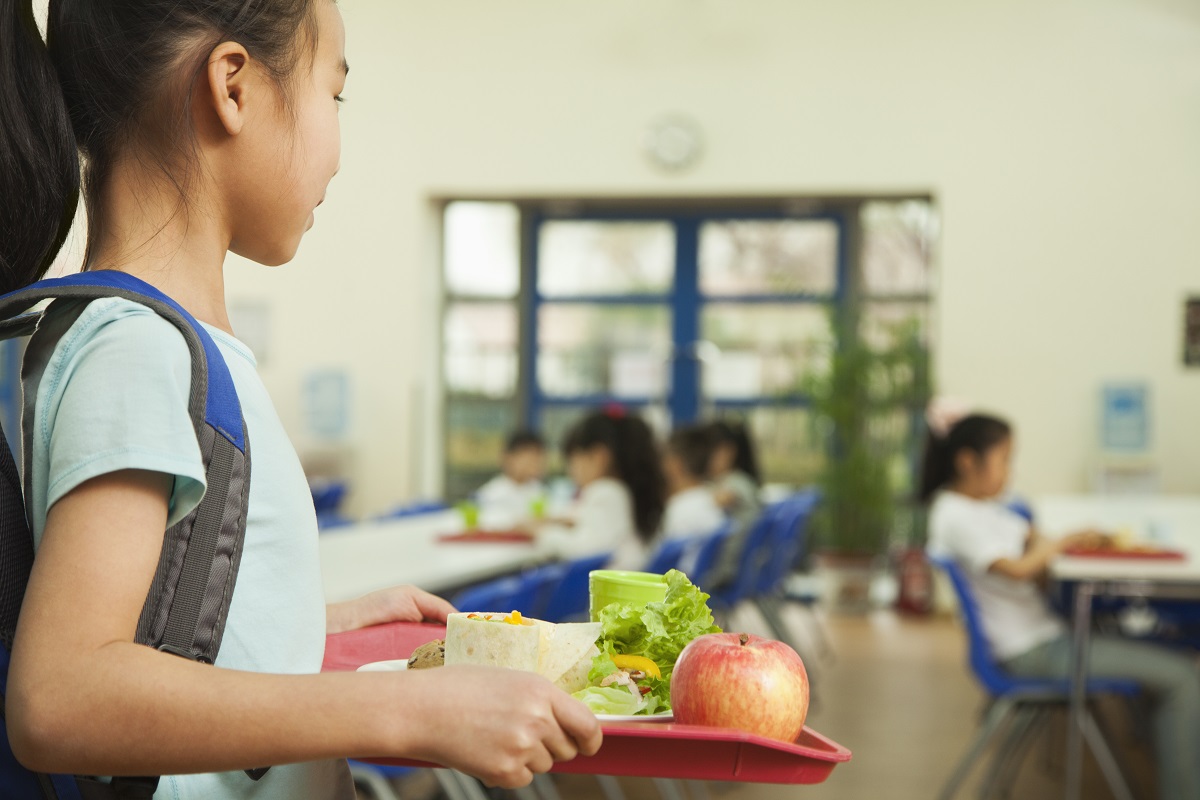Students with access to universal free meals (UFM) in kindergarten have better attendance records than children without this access, according to a research brief released Feb. 7 by Syracuse University’s Maxwell School of Citizenship & Public Affairs.
Among more than 132,000 New York City kindergarteners, attendance increased by 1.8 days per school year and chronic absenteeism dropped by 5.4 percentage points among those getting free school meals compared to those who did not, even when accounting for socioeconomic differences between students who receive meals and those who do not.
And those attendance benefits continued into elementary school, the study found, although gaps narrowed over time. The disparity in chronic absenteeism between those with and without access to universal school meals declined from a 5.4 percentage point difference in kindergarten to a 2.2 percentage point gap in second grade.
“Kindergarten is the foundational year of elementary school in which students are thought to learn key habits and behaviors that shape success in the longer term, but also the years with the highest chronic absenteeism rates among elementary school students,” researchers wrote. “Our results suggest early receipt of free meals can have a positive, lasting effect on attendance — at least through the early elementary grades — which may have important implications for later academic outcomes, including test scores and high school completion. Attendance has also been linked to long-term health outcomes, as chronic absenteeism is associated with drug use, teenage pregnancy, and other poor health outcomes.”
Researchers also found that — despite oft cited concerns among critics of universal meals that children will just double up on meals and obesity rates will rise — there was no evidence that access to universal meals in kindergarten had any negative effects on student weight outcomes in either kindergarten or later grades.
While students who received universal meals in kindergarten did have worse weight outcomes such as greater BMI and obesity in kindergarten, no evidence was found that such outcomes were due to the program itself, according to the brief. The disparity in weight outcomes between those with and without universal free meal access in kindergarten may be due to underlying or unobserved student characteristics, such as eating habits or activity level, researchers wrote.
“Given our findings, we believe district and school leaders nationwide should consider adopting UFM,” researchers concluded. “As more schools and districts adopt UFM, kindergarten students will begin their academic careers with access to free school meals, which can change their perceptions of school food and school more generally, and potentially improve academic outcomes in both the short and long run.”
California became the first state to offer universal school meals — breakfast and lunch — statewide starting with the 2022–23 school year. Learn more about state and federal efforts to expand access to school meals, additional benefits of doing so, and the innovation taking place in districts statewide to ensure meals are as healthy as they are tasty in the winter 2023 issue of California Schools.





